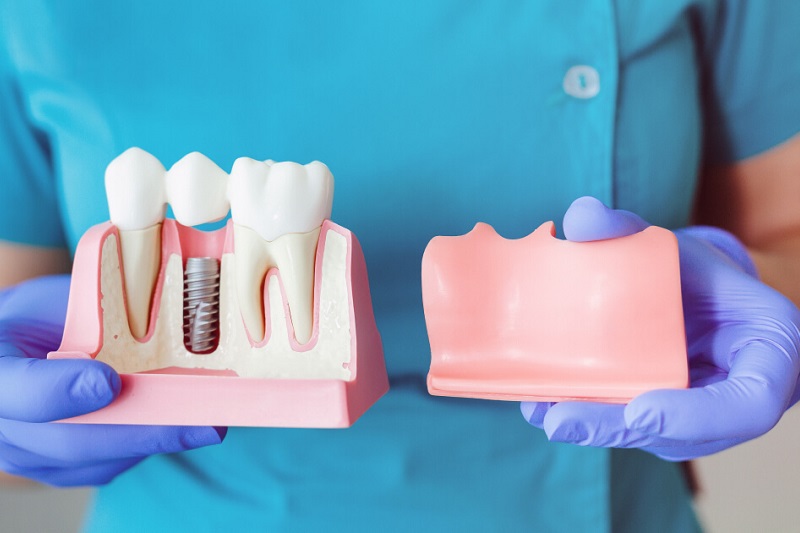Dental Implant Vs. Fixed Bridge – Which Is Best?
Nowadays when there are several treatment options available for missing teeth, it is very important to study the pros and cons of each treatment before you decide to choose for replacing them. While the Fixed Bridge option was selected by people for replacing a missing tooth for years, modern dentistry has made replacing teeth with dental implants a popular option. Irrespective of whether you have one or several missing teeth, you should consider the following when deciding between a dental implant and a fixed bridge:
Placement:
Both a dental implant and a fixed bridge will help replace teeth that were lost, which is good news for your oral function. A bridge is a fake tooth supported by two dental crowns; getting a crown means that adjoining teeth need to be buffed down so that the crown/cap can be placed. A Bridge requires healthy teeth to be physically altered in order to accommodate the crowns that support the bridge. This is why modern dentistry recommends implant-supported dental bridges as an alternative to suitable candidates. Dental implants are titanium screws that are surgically placed into the jaw, where they fuse with the bone and act as artificial tooth roots. Because titanium is not recognized as a foreign substance by the human body, the dental implants essentially become part of the patient's natural anatomy, providing unrivaled support for the dental bridge. Implant-supported bridges are simply caps (crowns) placed on the titanium screw itself. Therefore they save adjoining teeth from losing some of the tooth substance.
Flexibility:
In the case of a bridge, a dentist will need healthy adjacent teeth for support. Therefore fixed bridges require that at least one tooth be present surrounding the site of a lost tooth. The advantage of implants is that they can be used to replace more than one missing natural tooth. With dental implants, various combinations are possible as explained in the above image.
Longevity:
The life expectancy of bridgework is less than that of implants. There are more things that can go wrong with bridges, as they are (in general) not held as securely in place. Tooth decay, for example can destroy a tooth that holds the bridgework, whereas an implant is immune to decay. However both can be damaged by gum disease, so you need to maintain good oral hygiene.
Cost-Effectiveness:
The initial treatment cost of dental implants is typically more than a bridge. However dental implants do last longer than fixed bridges and can be considered a wise investment for long-term oral health.
Easy maintain and clean:
If you are considering implants, you should take into consideration another important advantage – implants are easier to maintain. The cleaning process is very simple and flossing between implants is possible.
Procedure:
To get a bridge, you will have to undergo a simple dental procedure that involves no surgery, whereas dental implants require surgical intervention.
A dental bridge is recommended in the case of jaw bone loss or significant damage. The process will be simpler, less painful, and less expensive in such instances. It is important to know that the positioning of dental implants demands healthy bone or bone grafting procedures where sufficient bone does not exist.
Retain jawbone structure:
Once a tooth is extracted or lost, the bone that is used to hold it in place shrinks away even after the bridge is placed. If there are several missing teeth, this may result in a visible change in the shape of the face. This can make a person look aged. A great benefit of implants is that they can help maintain the bone structure. A bone graft may first be needed, but once the metal settles, the bone will be preserved. Therefore the jaw shape will remain fuller and more natural. A dental bridge has no such benefits with regard to bone preservation.
Knowing these factors will help you make an informed decision about dental implants and bridges. Each option has its advantages that need to be compared for an informed decision to be made.
If you have still unanswered questions contact Guildford Dental Practice for more information about getting dental implants, bridges or other treatments for tooth replacement.



Leave A Reply